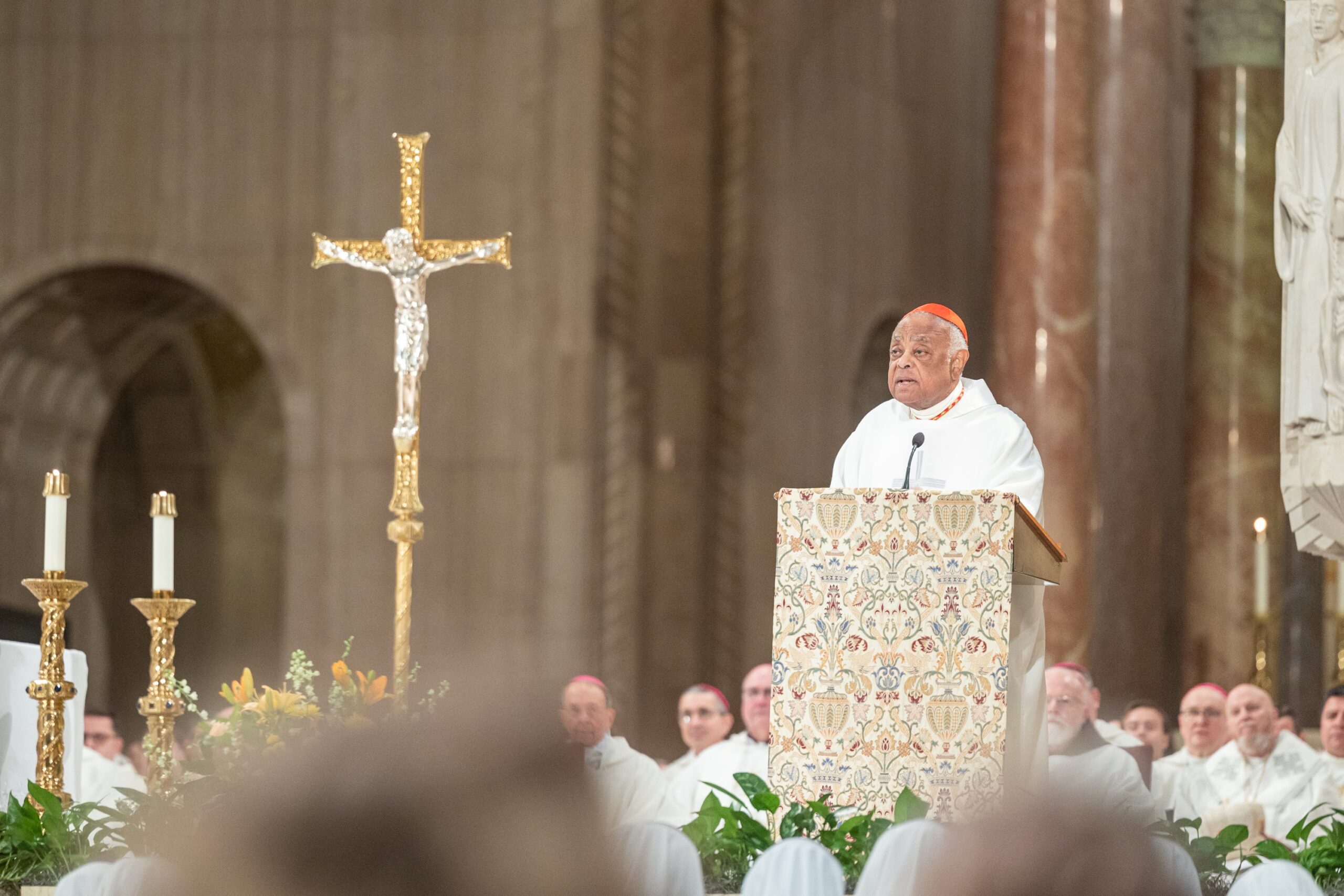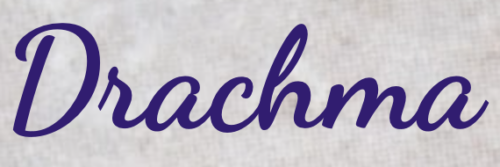Below is the text of a talk delivered by Cardinal Gregory to members of the LGBTQ community at Holy Trinity Catholic Church in Washington, D.C. on January 22, 2025.
Our faith is a gift that no Catholic ever truly merits or is ever fully capable of constraining. Each one of you might well look deep into your own heart and there you will probably recall many of the people and the personal circumstances that lead you to our Catholic faith. And you will note that I use the present form of that verb—lead—since all of us must continue on the journey of faith until we reach the kingdom that the Father has prepared for us.
We come to faith through the good example of parents, grandparents, teachers, spouses, children, neighbors, priests, and sisters who by their own witness inspire us to believe as they believe, to pray as they pray, to serve the needs of others as they do. Even for people who are baptized as infants, the witness of others encourages them to appreciate and to embrace the faith that the sacrament has already planted in their heart. We know this to be the case since infants who have received the sacrament of Baptism but whose own circumstances deny them the witness of devoted parents and family can and often do fail to realize and to bring to fulfillment the gift of faith that the sacrament has already planted within them.
Faith, I believe, is born in all of our lives through the good example of the people that God sends our way.
The way that we have treated our LGBTQ brothers and sisters has brought them tears and too many of us disgrace.
This Jubilee Year of 2025 focuses our attention on hope. I have never regretted one moment of being a member of this Catholic community of faith, even though those past 66 years have included many moments of question and even uncertainty. Faith is never a journey without its bumps and detours. If a person says that they have never questioned their faith, I doubt that they have ever reflected seriously upon the gift of faith that they claim.
What couple has never entertained a reservation about the wisdom, prudence or cause of their union? One of the common questions that youngsters ask me is whether I have ever had any doubts about my faith. Even at an early age, those young people have already begun to experience that faith does not exist without challenges and moments of doubt. I certainly acknowledge that I have had many.
The gift of faith is never free from moments of hesitation, pain, and frequent serious questions. You will recall the controversy that surrounded the publication of Mother Theresa’s autobiography in which she openly revealed the struggles that she endured and the dry moments that plagued her throughout her own extraordinary life of holiness. It seems that true believers, deeply holy people, and even saints often endure profound periods of doubts, fears and questions regarding the gift that they find so precious and compelling.
It seems that true believers, deeply holy people, and even saints often endure profound periods of doubts, fears and questions regarding the gift that they find so precious and compelling.
Even those who inspire and glorify the heritage of the church by their heroic virtue and extraordinary lives of holiness spend long periods of doubt and anxiety. So my faith has never been shaken because of the many doubts and questions that I have entertained. I have and I continue to feel sorrow and embarrassment, however, that has come to my faith because of the negative images that all formal religion has had to endure increasingly during the past generation. I have felt the sorrow of scandals that have touched and seriously damaged our Catholic Church and the humiliation that has visited my life because of the disgrace that religious intolerance and bigotry visits on all Christian churches. I have been ashamed because of the flawed example that we Catholics have given to the world because of our increasingly harsh treatment of one another—rejecting people because of race, gender, sexual orientation, ethnic origins, or any other distinctions.
Catholics on both sides of the ideological spectrum have heaped vicious and cruel condemnations upon all others who do not view the church as they themselves have decided to be the only valid vision of the Body of Christ. Such horrible infighting has caused many others outside of the Catholic Church—as well as many within—to throw up their hands and turn their backs on the possibility of ever wanting to become or remaining a member of such a dysfunctional family.
And while the ideologues may believe themselves at opposite points of the ecclesial spectrum, they are joined at the hip in the damage that they have inflicted upon this Church that Christ himself founded. We bishops and clerics have played more than our share in bringing shame to this precious Church of Christ by our sinful weaknesses and lack of courageous and effective leadership in response to the sins of clerics.
There is no room for religious bigotry that is largely fueled by lack of knowledge and ignorance on the part of peoples who may call themselves religious but whose behavior violates the basic tenets of most of the great faith traditions of the world.
These times seem so unlike that experience of the church that I discovered as a child in that Chicago south side parish school that witnessed a love for the truth of the church that both fascinated and beckoned me to the baptismal font. As I grew to know more about this church of ours, I discovered that every age has produced its conflicts, its disagreements, its controversies, its theological differences. Occasionally, those differences led to the witness that only martyrs can provide—so serious have they been.
Yet there is a difference in our world. We live with the gift of instantaneous and ubiquitous communication. Every thought, every opinion, every accusation is immediately available and the widespread hostile attacks from both sides of the theological divide are spread abroad without any need for proof or facts. In such a climate, the work of evangelization is made even more difficult and awkward. This has been a sorrow for me, and I suspect for many other Catholics as well.
The divisions among the world’s religions are another source of personal sorrow. Ecumenical dialogue is difficult work—but it is the desire of the Holy Spirit to bring about the unity for which Christ Himself prayed on the night before he died for us. Admittedly, some events within the past generation have brought great hope to the hearts of believers, but there have also been as many obstacles placed before this important work. Many people look at the divisions that separate the Christian religions and they must question how these people can dare to refer to themselves with the name of Christ Himself. These divisions have saddened me and caused me to lose heart at times.
I have never for one moment doubted that I have made the correct journey of faith within Catholicism, but I have been deeply distressed by the state of things in the world in which the Church must witness to the Risen Lord.
I have been troubled by the loss of Catholics from our church. The recent survey reports by the Pew Foundation and its counterpart from CARA have attempted to offer some statistical analysis of the numbers and the motives that have driven people from the religions of their childhood. We all know many of them: Marriage problems, insensitive pastoral encounters with ministers of religion, widely publicized church scandals, anemic worship and callous attention to the spiritual needs and aspirations of people because of their gender identity.
I have heard too often of former Catholics who have abandoned their faith for other religions because they have felt comforted and better served therein. Leaving Christ for other non-Christian religions because they have discovered a depth of prayer—therein is a sorrow that tears at my soul. How have we—how have I—failed to witness to Christ effectively so that my sisters and brothers are strengthened in their faith rather than driven from it? Interfaith exchange has grown more important as people from many of the world’s great religious traditions are now our neighbors. There is no room for religious bigotry that is largely fueled by lack of knowledge and ignorance on the part of peoples who may call themselves religious but whose behavior violates the basic tenets of most of the great faith traditions of the world.
As I recall the enthusiasm of my youthful first encounter with Christ in the Catholic Church, I am renewed and reaffirmed that Jesus has brought me here to the priesthood and to the episcopacy for his own purpose. I have never for one moment doubted that I have made the correct journey of faith within Catholicism, but I have been deeply distressed by the state of things in the world in which the Church must witness to the Risen Lord. I apologize for my own failure to emulate Christ’s compassion. The way that we have treated our LGBTQ brothers and sisters has brought them tears and too many of us disgrace. I apologize from the heart for the hurt that has resulted in the loss of so many of our family members who belong to God no less than I do. I apologize not only for those whose past actions have scandalized and wounded these men and women. I apologize for my own lack of courage to bring healing and hope, and I ask forgiveness.




